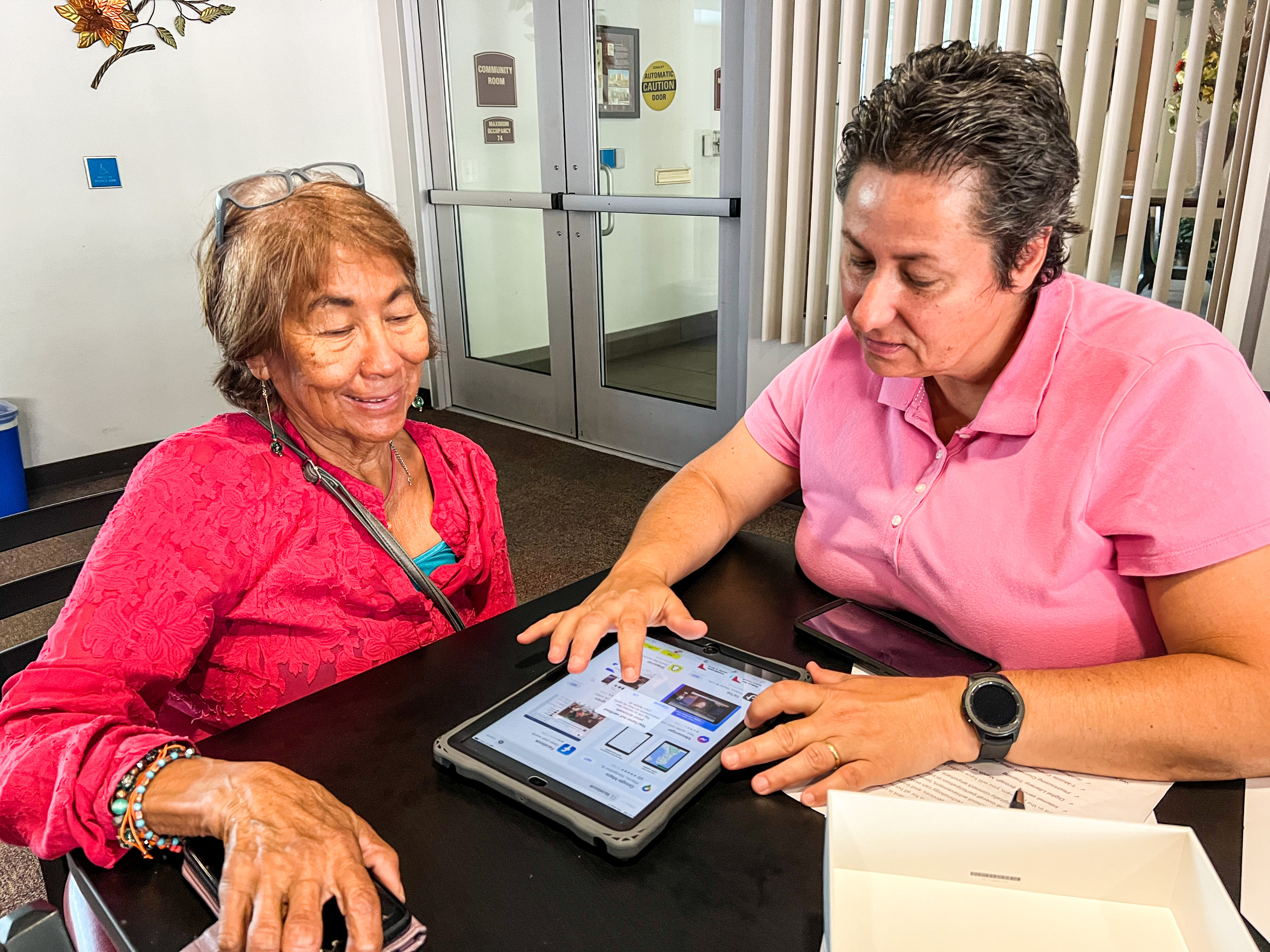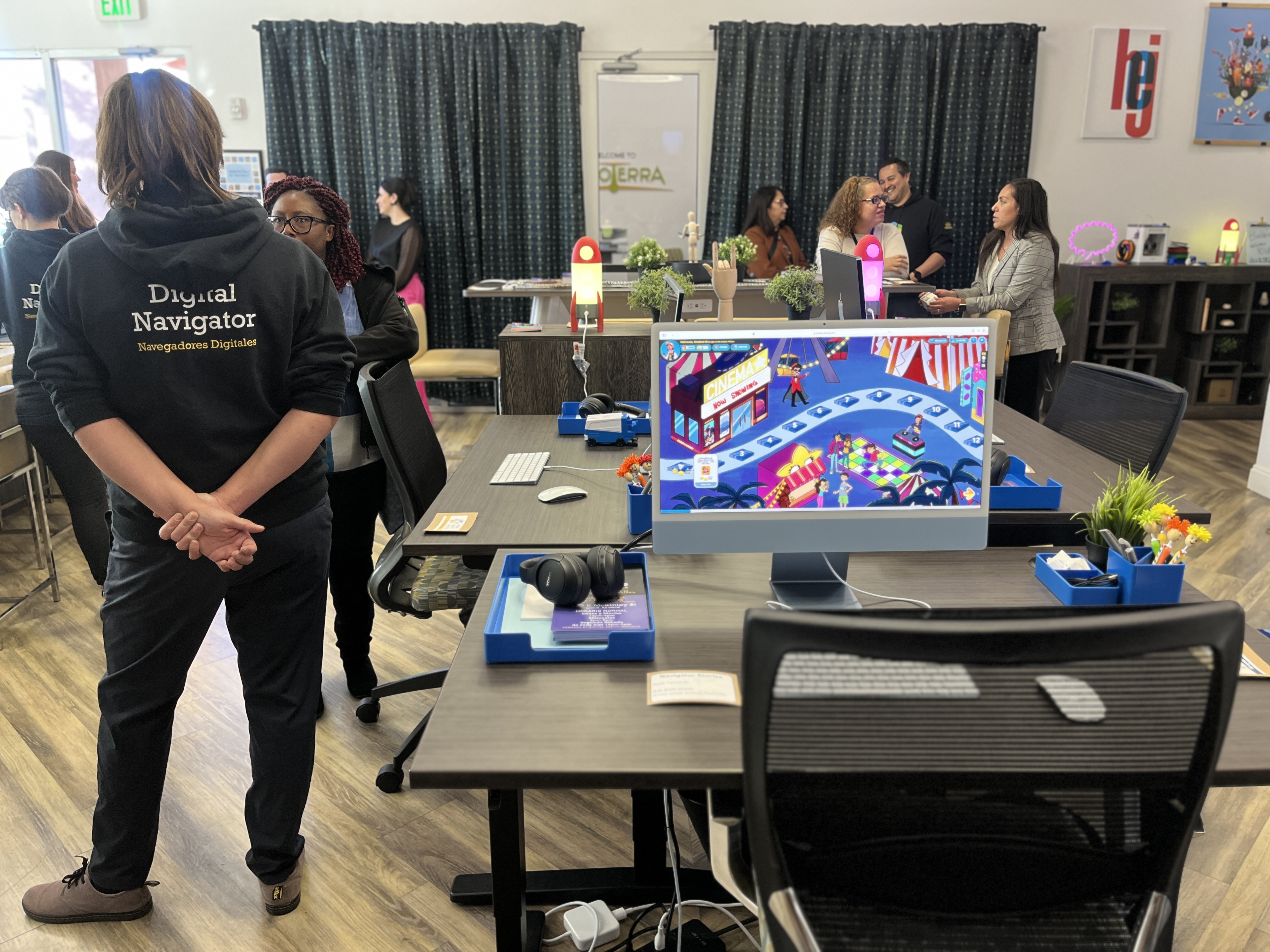Bridging the Digital Divide with Affordable Housing Wi-Fi Initiatives
Phoenix, AZOf the City’s $396 million in ARPA recovery funds, Phoenix dedicated $5 million to equip low-income households living in 42 affordable and public housing communities with access to high-speed Wi-Fi internet and related services to bridge the digital divide. As Courtney Anderson, a Housing Manager for digital and community programs for the Phoenix Housing Department puts it: “Having devices and connectivity in the home is not a luxury, it's a necessity. And so making sure that our community members can participate in school and work in their community is important and we’re now trying to address the gaps.”
Why this investment?
Around 46 percent of families living in Phoenix’s public housing do not have high-speed internet at home or only have access to smartphones, and only 30% of households in low-income senior housing have access to broadband service. To address this gap, Phoenix’s housing department participated in the federal ConnectHomeUSA program in 2017. In 2020, they launched the PHXHousing Connect program to provide connectivity and devices to families with school-aged children and seniors in public and subsidized housing.
When the pandemic hit and the only way children could attend school was online, the housing department realized more connectivity was urgently needed. In May 2020, the department used $1.42 million in CARES Act funding to distribute 800 tablets with two years of unlimited data service to families with school-aged children living in public or affordable housing units. They later distributed 800 tablets with T-Mobile service for senior residents. Through this original launch, the housing department served 16 housing sites.
In 2022, the department used $1.5 million of CDBG funds to extend the unlimited data service on the original devices for two additional years and purchased 1,717 more devices that the department is continuing to distribute. The Affordable Housing Wi-Fi Initiative’s investment builds on previous digital equity projects led by Phoenix’s housing department.

What is this investment?
In December 2022, the Phoenix City Council approved up to $5 million in ARPA funds to deliver access to Wi-Fi and internet connectivity; digital literacy training; Wi-Fi and digital broadband infrastructure; and other digital services to 10 of the City’s public housing and Section 8 communities. In October 2023, the housing department recommended that 27 additional public and affordable housing communities receive the same services, and the city council authorized this project expansion. Through this investment, the City will provide a minimum of three years of free-to-the-tenant Wi-Fi connectivity along with other internet-related resources to 5,514 low-income households.
With the ARPA funds, the department is working to provide more permanent, free, high-speed Wi-Fi access along with digital literacy training to all the households and properties they are serving. As Angela Duncan, Deputy Housing Director notes: “The ARPA funds are allowing us to move from the device access to residential access in their home and then looking at ways to sustain that over time.”

Centering equity in the program
The Affordable Housing Wi-Fi Initiative serves low-income households living in publicly subsidized affordable housing units throughout Phoenix. The majority of the households served are very low-income (54 percent) or extremely low-income (20 percent), and 79 percent are Black, Indigenous, or other people of color with Black/African American and Hispanic/Latino residents making up 31 percent and 40 percent of the program, respectively. These sites also house Russian, Chinese, Somali, and Afghani communities. To ensure an equitable implementation of the program and that their users are comfortable, the housing department has been working with translators to help with device and services deployment as well as training.
A key aspect of the housing department’s work is understanding the digital inequity that their low-income communities face. Not only does this involve providing devices and connectivity, but also digital skills training as Duncan explains that some residents “haven’t been exposed to this type of technology before.”
Anderson describes the training aspect as “one of the missing pieces” for Phoenix’s low-income residents. During the pandemic while the housing department was trying to disperse the devices as quickly as possible, it was difficult to adequately train the users, especially the senior residents. To help remedy this, Phoenix’s housing department partnered with the Institute of Digital Inclusion Acceleration (IDIA) using funding from Maricopa County to open the Hive at Aeroterra, a digital equity center on December 1, 2023. The center is free to all community members to receive one-on-one help with their technology needs. Although the center and partnership is new, Anderson is excited about what it can provide low-income residents: “We’re also going to be able to do some after school work with youth and do some site based training with their digital navigators at our senior sites.” A second center was opened in 2024 at the Emmitt McLoughlin Community Training and Education Center called the Hive at CTEC. Over twelve affordable and senior housing sites are located within a mile of one of the two Hive digital equity centers.
Outcomes to date
Phoenix’s housing department is in the early stages of implementing the initiative. Currently, they are working with contractors and partners to start connecting the 47 low-income communities with Wi-Fi services. The process to connect 5,514 homes began in February 2024, currently 2,058 households have been connected with three years of internet in their home.
As for the housing department’s work with rolling out devices, 3,300 devices with data service in total have been acquired and distributed to low-income households across three rollout periods. In the first and second phases, households with school-aged youth and seniors received tablets and the third allocation included Chromebooks and iPads.
Toward transformative change
For those at Phoenix’s housing department, investing in the community is key. Currently, the ARPA allocation provides three years of internet connectivity to 42 low-income housing properties in Phoenix, and the department is already looking towards the future for ways to sustain this connectivity over time. Duncan explains that the department is looking at possible funding avenues to set aside for the future of this program.
When making suggestions for other jurisdictions interested in implementing a similar program, Phoenix’s housing department highlights exploring different streams of funding as well as fostering relationships and partnerships. For Duncan, the ARPA and CARES Act funding has helped “move the needle” in having the issue of digital equity receive visibility and the department getting noticed for their work. Anderson points to partnerships which help provide invaluable resources to aid their initiatives, such as the IDIA and T-Mobile who provided devices at no cost, as well as volunteers and in-kind services. Additionally, the department stresses the importance of having staff to work through multiple aspects of the implementation process. Anderson notes that “it doesn’t take a lot to get people that are passionate about this work because once you see the impact, I think anyone would be on board.”
